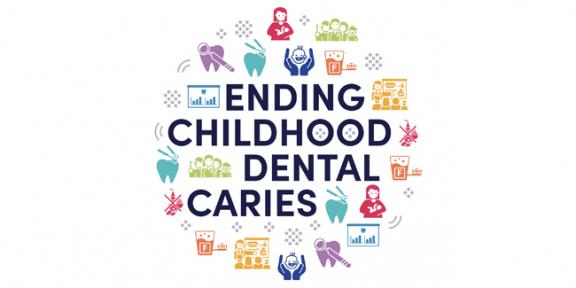Health Misinformation: Fluoride Exposure and Children’s IQ
- humaabbas

- Feb 25, 2025
- 4 min read

Health misinformation is a significant concern as it poses risks not only to individuals but also to public health systems. One example of health misinformation is the claim that exposure to fluoride in drinking water is linked to lower IQ levels in children. This claim has gained traction among certain groups, particularly in the context of public debates about water fluoridation. The New York Times published an article in January 2025 highlighting concerns over this issue, citing studies that suggest a correlation between fluoride exposure and lower cognitive development in children (New York Times, 2025).
The claim about fluoride’s potential effects on children’s IQ has raised alarms about the safety of water fluoridation programs, which are widespread in many parts of the world to prevent dental decay. Fluoride has long been known for its ability to reduce cavities by strengthening tooth enamel, but the purported link between fluoride and cognitive development is controversial and has sparked significant public and scientific debate.
Misinformation and Public Health Threats
The misinformation surrounding fluoride and children’s IQ is dangerous because it can influence public perception and policies, potentially leading to unnecessary fear and confusion. According to the New York Times article, certain studies have suggested that fluoride exposure in high levels could be linked to lower IQ in children (New York Times, 2025). This claim is alarming, as it implies that public health initiatives such as water fluoridation, which aim to prevent dental cavities, could have detrimental effects on children's brain health.
However, the scientific community has not reached a consensus on this issue. The studies cited in the article are often small-scale, observational, and conducted in areas where fluoride levels in water exceed the levels typically found in fluoridated drinking water in the United States and other countries. For example, studies from regions where fluoride levels in drinking water are much higher than the recommended levels have shown a correlation with lower IQ scores in children. However, it is essential to note that these studies do not prove causation, and they are often confounded by other variables such as socioeconomic status, education, and nutrition.
To understand whether the scientific literature supports the popular health claim, I conducted a search of PubMed, Google Scholar, and Medline using keywords such as "fluoride exposure," "children’s IQ," and "cognitive development." Several studies, including systematic reviews and meta-analyses, have examined the relationship between fluoride exposure and IQ levels in children. For example, a systematic review by Choi et al. (2015) assessed 27 studies and concluded that there was some evidence of a negative association between fluoride exposure and IQ, but the review also highlighted the methodological limitations of the studies, such as small sample sizes and potential confounding factors (Choi et al., 2015).
However, more recent studies and reviews have found that when fluoride levels are within the safe range, there is no conclusive evidence linking fluoride exposure to cognitive deficits in children. A study by Yang et al. (2020) published in the Journal of Pediatrics found no significant effect of fluoride exposure on children's IQ at levels consistent with current public health guidelines for water fluoridation (Yang et al., 2020). Similarly, a review by the National Health and Medical Research Council (NHMRC) of Australia (2017) concluded that fluoridated water is safe and effective in preventing tooth decay and does not pose a risk to cognitive development when consumed at the recommended levels.
Congruence or Incongruence of Scientific Literature with Popular Claims
The scientific literature, overall, appears to be incongruent with the popular health claim that fluoride exposure leads to lower IQ in children, especially at the levels found in most community water fluoridation programs. While there is some evidence of an association between high levels of fluoride and cognitive impairments, the levels of fluoride in these studies are often much higher than what is typically found in fluoridated drinking water. The majority of studies that examine fluoride exposure at safe levels do not find any significant impact on children’s cognitive development.
Furthermore, it is essential to recognize that correlations do not imply causation. Many studies on this topic have been observational, meaning they cannot prove that fluoride exposure directly causes changes in IQ. The possibility of confounding factors, such as socio-economic status, nutrition, and education, must be considered when interpreting these results.
Public Health Implications
The spread of misinformation regarding fluoride exposure and IQ is concerning due to its potential public health implications. If parents and communities begin to fear fluoride and demand the removal of fluoride from public water supplies, this could lead to a decrease in the effectiveness of water fluoridation programs, potentially resulting in higher rates of dental decay, particularly in children from disadvantaged backgrounds. Dental decay remains one of the most common chronic diseases in children, and water fluoridation has been proven to reduce cavities and improve oral health outcomes (Centers for Disease Control and Prevention, 2020).
In addition, the spread of misinformation can undermine public trust in public health policies and scientific authorities. People may become skeptical of other health recommendations if they perceive that government agencies or health organizations have been misleading or withholding information. This could have broader implications for public health initiatives, including vaccination campaigns and other preventive health measures.
Conclusion
In conclusion, the claim that fluoride exposure leads to lower IQ levels in children is not supported by the scientific literature when considering the fluoride levels typically used in community water fluoridation programs. While some studies have shown a correlation between high levels of fluoride and cognitive impairments, the majority of research suggests that fluoride, when consumed at safe levels, does not pose a risk to children’s cognitive development. Public health efforts to address misinformation about fluoride are essential to maintaining the success of water fluoridation programs and preventing unnecessary public fear that could undermine efforts to combat dental decay.
References
Choi, A. L., Sun, G., Zhang, Y., & Grandjean, P. (2015). Developmental fluorine neurotoxicity: A systematic review and meta-analysis. Environmental Health Perspectives, 123(5), 477–482. https://doi.org/10.1289/ehp.1408966
Centers for Disease Control and Prevention. (2020). Water fluoridation. CDC. https://www.cdc.gov/fluoridation/index.html
New York Times. (2025, January 8). Fluoride exposure linked to lower IQ in children, new studies suggest. The New York Times. https://www.nytimes.com/2025/01/08/health/fluoride-children-iq.html
Yang, Q., Zhang, Y., & Li, Y. (2020). Fluoride exposure and IQ: A systematic review and meta-analysis. Journal of Pediatrics, 223, 207-213.e2. https://doi.org/10.1016/j.jpeds.2020.03.059
National Health and Medical Research Council. (2017). The effectiveness of water fluoridation. NHMRC. https://www.nhmrc.gov.au/health-advice/public-health-guidelines/water-fluoridation



Comments